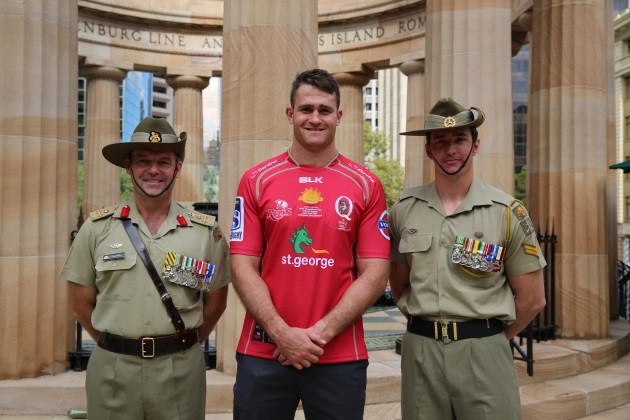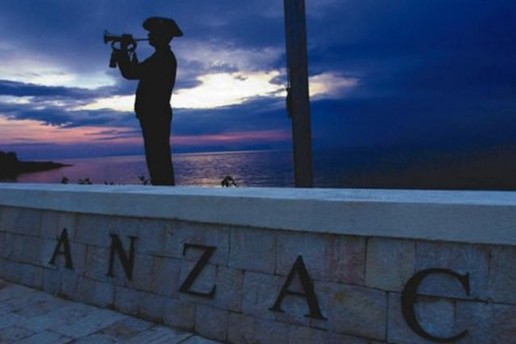There have been an infinite number of mentions over the last few months about the ANZAC Centenary, and an infinite number of companies using the occasion to spruik products, or try to sell to potential customers that they share the same “ANZAC Spirit”.
As expected, many people have jumped up to decry this blatant commercialism and attempts to cash in on what many consider the sacred cow of Australian and New Zealand cultural identities.
I spent 12 years as a professional soldier from 1987 to 1999, including a combat deployment to Somalia in 1993 (the first full battalion group to be deployed in combat since Vietnam), and back in the day I spent many a beer or two talking to those who came before me, including veterans from Vietnam, Malaya, Korea, WW2 and WW1. Many of the boys and girls I served with are also from the recent conflicts in Iraq and Afghanistan. Those of us who have served are the true sons and daughters of ANZAC.
I’d like to talk to you about what many veterans feel about the commercialisation of ANZAC, and in particular, the comparison between soldier and sportsman. You know what I am talking about; two teams are about to “enter the battlefield” and “go to war”.
Firstly, and while I can’t (and would never dare) speak for every returned serviceman, I can certainly speak to my personal viewpoint, which I know reflects the views of many of my former brothers-in-arms. So, let’s address the first elephant in the room; the problem of rampant commercialization of ANZAC.
There is no problem.
Seriously, what is the problem here? That some organisations use the ANZAC “brand” to sell a few groceries? So what? The original WW1 ANZAC’s (and their actual sons in WW2) fought for democracy; for an ideal that society gets to make the decisions about what happens in our country via elected political leaders. If those elected leaders don’t do the job, we toss them out and bring in new leaders. That as long as no-one gets hurt, or are not marginalized for religious/sexual orientation/gender based beliefs, the market forces are free to, well, be free.
I think my grandfathers would be quite proud that what they fought and died for is still a going concern. They might not agree with it (any civilization that invents and sells a mankini is obviously on a short road to oblivion) but I have no doubt that they would be content for us to reap what they have sowed. If that means Woolies gets to bastardize the ANZAC culture so that “Fresh in our Memories” actually refers to food produce, then ok. It’s far better than having an unelected dictator decree that Woolies Security Staff can legally force-march us in at gun-point to buy a kilo of pears.
It is worth noting that the Woolies campaign has been pulled due to “public influence”. The public spoke and the company listened. Democracy in action. Imagine that!
Personally, I’m not a fan of anyone using the ANZAC name for marketing/sales purposes. Neither are the RSL, who can be quite quick to smack someone on the wrist if they feel a line has been crossed. But are Woolies stomping on the memories of our fallen serviceman? No. Hell no. Are they being tactless? Yes, quite possibly, but how is that different to using the ANZAC brand to promote a footy game? Our society is quite good at self-regulating, even if sometimes that message is hypocritical. Look at the number of Australians and New Zealanders who gather at shrines around the country, and clap veterans as they march on ANZAC day. Are they thinking about that kilo of pears at Woollies, are are they there to show respect?
Importantly, from my helicopter view, the important thing is that we are talking about ANZAC. While we do that, we remember and keep the spirit alive, even if that spirit has been slightly bent in an unintended commercial direction.
So, the second point: The comparison of soldier to sportsman.

Thinking about it, is really is a quite apt comparison. As a soldier, there are gangs (clubs, if you will) imbedded in the services. It is a bit more complicated and evolved than I have space to write about, but at a basic level, every infantry soldier belongs to a section (a group of 10), then a platoon (30), a company (100) and a battalion (500-ish). Your allegiance is to your section first, and so on.
As a section, you do everything together. You eat, sleep, bleed, cry and laugh as one, 24/7. They are closer to you than your family (they ARE your family) and for an outsider to cross one is to cross all. It is mateship on a scale that can never be understood in a civilian context unless you have been there, done that. If that sounds a bit high and mighty of me, then you are right. I don’t apologise for that; I’ve earned it.
And here’s the kicker – You might not even particularly like the bloke you share a hole in the ground with. But that is largely irrelevant; he is your brother and you would take a bullet for him. And some do.
For the modern soldier being sent to some shithole across the world to fight and die on behalf of political will, it may surprise and sadden you to know that we don’t do it for Australia, and while we will do anything we can to protect the innocent and unleash the Gods of Thunder on the bad guys, we don’t really fight for them either.
We fight for our mates.
Put that into a sporting context, say a rugby club for example. And even better, let’s put that rugby club in a non-rugby area, like a Perth or Melbourne.
So what you have is a group of men, highly trained in the boot-camps and kindergarten schools of Sydney or Brisbane, being sent to a remote location where they know almost no-one and have no immediate support from family and friends.
What they do have is a gang of fellow clubmen who are all on the same page; to put themselves into a contest and win. So they become a band of brothers, insular and full of a “Them v Us” mind-set.
Plenty of these blokes are not actually mates. And when they move to another club, there will be plenty of blokes that will never speak to a former team-mate again. But that again is irrelevant; while they are at the same club, wearing the same jersey and fighting the same “enemy”, they will do anything for each other.
So the consequences are a bit different; let your team-mate down in combat and someone is going to die. Let a teammate down in a footy match and you might give away a penalty. But the consequences aside, what else is different?
Not courage, that’s for sure. It takes courage to move forward in a contact action when the bad guys are shooting at you. But does it take any less courage to stand under a high ball knowing that you are about to have an opponent play a Mozart concerto on your rib-cage? Forget consequences; courage is doing something that is against the basic human nature of self-preservation. It is unnatural to run towards someone shooting at you. It is unnatural to stand and wait to get smashed by a front row monster. It is unnatural to run into a burning building too, but plenty of people do.
Fight or flight. I’m sure you have heard about that, it is a very natural human phenomenon. While flight has the heavier weighting in most people, it is very possible to turn the tables and gear yourself up for the fight part. Lots and lots of intensive training will do that, sure, but what makes it easier is knowing that someone is alongside you in that moment of madness, and they have your back. A soldier and a rugby player are both just playing team sports in a different context. The team is everything.
So let’s be a bit less worried about comparisons, and what the spirit of ANZAC is. I’d quite like people to stop calling everyone who wears a uniform a hero. Not all soldiers are heroes; most of us are just normal people who have been very highly trained to do a very dangerous job. The single mum who works 2 jobs and raises well-balanced children is a hero. The doctor who puts aside a career in private practice to provide healthcare to villagers in war-torn Sudan is a hero. The person who stands up for a foreigner being racially abused on a bus is a hero.
Let’s be a bit more concerned about things that really are offensive, like a mankini.


